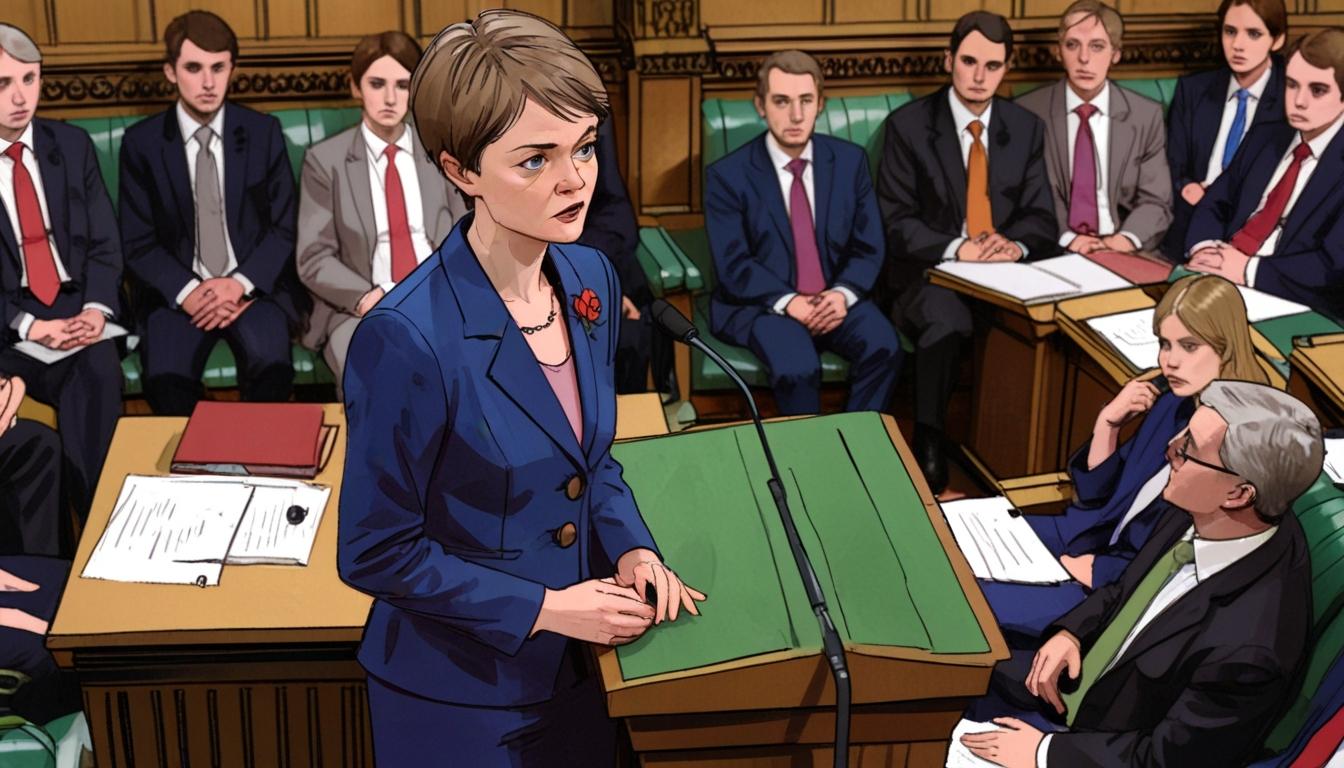Yvette Cooper's recent appearance in the House of Commons, aimed at unveiling the government's immigration White Paper, was characterized by apparent disarray. The Shadow Home Secretary’s fluctuating accent and unclear delivery aptly reflected Labour's faltering immigration policy—ensnared between public outcry and internal conflicts. Her speech, teetering between sincerity and defensiveness, underscored a growing frustration with Labour's inability to directly address the electorate's concerns around immigration.
Contextualizing Cooper's address are Sir Keir Starmer’s remarks that reveal a mounting unease within Labour regarding immigration. While Starmer attempted to present a framework that hints at a return to traditional, restrictive measures—echoing rhetoric reminiscent of past failures—this has ignited significant backlash from the party’s more progressive factions. Critics have rightfully pointed out the hypocritical nature of Starmer’s current position, questioning whether his approach is grounded in genuine conviction or political expediency.
Cooper's arguments came on the heels of a concerning doubling of work visas, a glaring indictment of government incompetence in skill development and training. She advocated for a stable, education-driven approach rather than a reliance on foreign labour—a proposal that stood out for its lack of substantive detail. This lack of clarity illustrates Labour's ongoing struggle: reconciling their historical commitment to progressive values with the real fears of constituents who see their job opportunities threatened.
Tempers flared inside the Commons, as MPs from all sides engaged in spirited debate over immigration. The remarks concerning migrant arrivals were met with utter dissent from Labour members, highlighting the rifts within the party on such a crucial issue. The lingering shadow of the Windrush scandal served as a stark reminder of the failures that continue to haunt UK migration policies, prompting several Labour MPs to demand a confrontation with the deep-rooted racism embedded in these systems.
Simultaneously, voices from the Scottish National Party called for a more inclusive immigration stance, underlining Scotland’s demographic needs. This contrasting plea against Labour’s current rhetoric exposes fractures within the party, raising questions about its unity and direction regarding immigration policy.
As the session progressed, Cooper's increasingly frantic delivery—evident through her aides' visible anxiety—reflected the pressures Labour faces in articulating a coherent immigration strategy. The urgency for a compassionate, yet firm, immigration policy is palpable, as societal calls for reform gain traction across the political landscape. Labour must grapple with the daunting task of crafting a narrative that fulfills its base's aspirations while addressing pressing public concerns.
In this tumultuous environment, the Deputy Prime Minister’s talk of a "tolerant Britain" stands in stark contrast to the tumult and hostility fueling current immigration debates. While acknowledging migrants' contributions may be a refreshing perspective, the reality remains that Labour’s existing narratives lean far too heavily into the old, ineffective frameworks.
The ongoing turmoil within the Commons underscores a broader uncertainty for Labour at this critical juncture in UK politics—where immigration policy is no longer a fringe concern but a central issue demanding decisive engagement. As it stands, Labour’s ability to navigate these internal contradictions and articulate a compelling, inclusive vision is more essential than ever. Only time will reveal if they can rise to meet this pivotal challenge.
Source: Noah Wire Services
